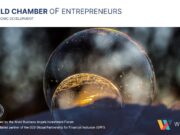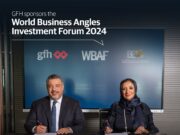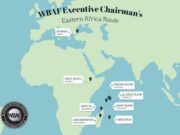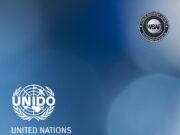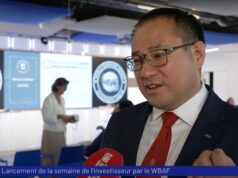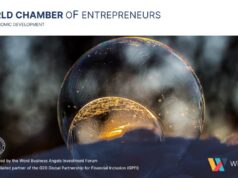An Exclusive Article by Baybars Altuntas, Executive Chairman World Business Angels Investment Forum, for the Angel Investor Review
FPO: An innovative financial framework for smart entrepreneurs
‘What’, you may ask, ‘is an FPO’?
No, it’s not like an IPO (initial public offering). It’s a new angle on an existing concept—a ‘franchise public offering’. Let’s say your business is doing well. You’ve already had several rounds of financing. Your business has several branches, and you’d like to keep growing — but running the branches is sapping all your time, your energy, and your creative juices. You are considering if an IPO might be in your future.
The IPO trail
An IPO sounds exciting, but once you learn about the procedures and requirements, you’ll understand that there are significant drawbacks. Getting a company through to its IPO is time-consuming and extremely expensive, and what seem like hundreds of financial, regulatory, and legal hurdles are waiting for you. Another important downside is that you give up some of your equity in the company and turn over control to a board of directors — and of course you will have to keep your shareholders happy. In essence, you end up a quasi-employee of your own company.
A road less traveled: FPO
Let’s say you are not keen on the idea of other people deciding on how your company will be run, especially if, until now, you are the one who has put their blood, sweat, and tears into the company to make it the success it is today. Let’s say you don’t want to go through the long and tedious process of pursuing an IPO and spend lots of money doing it. An FPO is an avenue you may not have considered. I see an FPO as a variation on conventional franchising models.
How franchising works
Franchising is an alternative method of raising capital. It allows you to scale your business with minimal capital investment on your part; you use other people’s money to expand. And unlike with an IPO, you don’t risk debt or give up equity. You still own the business, and you own the brand. Franchising also offers advantages from a management point of view, as franchisors don’t have to spend their time on the day-to-day running of the each franchise. That is what your franchisees will do for you. This frees up your time so that you can focus on developing the big picture, engage in other business opportunities, and expand on your entrepreneurial and leadership skills. Not having to run everything yourself relieves much of the stress and takes away the hassle.
What is more, franchisees, as owners of their businesses, have a personal stake in making sure their franchise succeeds, so they are always on the lookout for ways to improve the business, which strengthens your brand in the process. You as the franchisor enforce brand consistency throughout all your franchises and receive a share of the profits.
So what’s the difference between conventional franchising and FPO? The differences are relatively simple: First of all, with an FPO, you start with a good number of existing branches. You convert those branches to franchises — and then open up the field to new franchised branches. In conventional franchising, however, franchisors may have one or even several branches that they run themselves, so they are not entirely free of the day-to-day branch management.
Preparation is important. A strong brand is key if you want to make a successful FPO. You need a high-quality product and high brand recognition before you start. These are not created overnight. They therefore need to be part of your long-term growth strategy, preferably from the early stages of your entrepreneurial journey. The underlying message: Put branding as a focal point early on in your business plan.
You also need to recruit good franchisees, people who will take the formula that has worked so well for your business and use their own capital and their own managerial skills to grow your brand throughout your country, and maybe even into new markets.
My story
I had an entrepreneurial streak in me even as a child, but my adult entrepreneurial journey began when I initiated a series of vocational training courses that addressed a need created by my country’s rapid expansion in tourism and aviation. In the beginning, the offer was training for flight attendants, ground hostesses, ticketing agents, and tour operators. The uptake was swift, and we soon added an English language component because demand for English-speaking professionals in these occupations was high. From there, we expanded on the language side of the business as well as increasing offerings in vocational training. We became the go-to place for both vocational training and language learning. All the while, I was building the brand.
I had chosen an out-of-the-ordinary name for the company, and to build the brand, I ran full-page advertisements in newspapers, capitalized on testimonials, partnered with a high-profile university that helped develop level standards and provided pedagogical advice. I was opening branches throughout the city and then in other cities throughout the country. With a dozen or so branches, I was run ragged trying to manage them all. I was dealing with more than 600 personnel, course materials, schedules, certificates, advertising, government bureaucracy — you name it, it was all on me. Yet there was still plenty of room for growth that I wanted to capture.
I had looked into filing for an IPO, but I quickly realized that it was not as simple as I had thought — and that I’d be giving up a lot, including control of how my company was run. Franchising alone was not the answer for me, however. I had to find an innovative way to scale up my business in a way that would free up time for me to focus on new entrepreneurial adventures. Opening new branches would increase my load. So I franchised my own branches, which paved the way (and thereby increased the demand for new franchises). Voilà! My FPO! In this model, you own the brand, you still own and have control of how the company is run, and you have time to focus on develop new businesses, if you like. I’ve never looked back; it was one of the best decisions I could have made. As you grow your company, perhaps you too should consider an FPO. I could liberate your time so that you can enter new fields of entrepreneurship and expand on your leadership skill set.
[Go to amazon.com for my autobiography, where I explain my entrepreneurial history.]
Baybars Altuntas
Former Senior Advisor of the London Stock Exchange Group (LSEG), Executive Chairman of the World Business Angels Investment Forum (WBAF) – an affiliated partner of the G20 Global Partnership for Financial Inclusion (GPFI) chaired by the Queen Maxima of the Netherlands, and President of Deulcom International Inc., Star of the Turkish version of the television show Dragons’ Den / Sharks Tank. Recipient of the European Trade Association of Business Angels (EBAN) award for the Best Individual in Europe Globally Engaging with the Global Entrepreneurial Ecosystem in 2014 (Ireland), 2015 (Netherlands), 2016 (Portugal), 2017 (Spain) and 2018 (Bulgaria). The only angel investor to be granted a personal audience with former President Obama at the Presidential Summit on Entrepreneurship in Washington DC. Appointed as JCI Ambassador, following Ban Ki-moon, former Secretary General of the United Nations. Profiled regularly by leading international media such as CNN International, Bloomberg, BBC. A co-author of Planet Entrepreneur: The World Entrepreneurship Forum’s Guide to Business Success Around the World, published by Wiley (2013). Author of ‘’How I Became a Top TV Star and Celebrated Investor’’, published by Balboa Press (2014) and translated into Chinese, Croatian, Albanian, and Macedonian.


